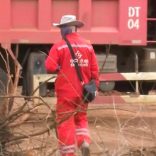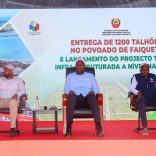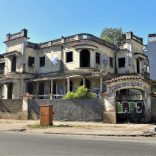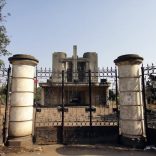Mozambique: Chibabava cement project fined 14 million meticais – Watch
Tete: Trial of strength between population and military over sale of land rumbles on – DW

Photo: DW
- There is still no consensus on the land conflict between civilians and the military in the Chingodzi neighbourhood, on the outskirts of the Mozambican city of Tete. Mediators have attempted to foster dialogue, but recent meetings have not resulted in progress.
A week after the military used live fire against protesters and assaulted civilians in central Mozambique’s Tete city, the municipal council brought the two parties together to try to resolve the increasingly tense land conflict.
At issue are several hectares near the military police barracks, where, until 2010, several families used to live and farm. Then, the military started using the area, the military police claiming that the land is part of the barracks and that civilians cannot occupy it. However, several families are resisting eviction.
In the last mediation meeting, on August 26th, the city council said that the civilians had abandoned the lands, provoking a community revolt. At the reconciliation meeting, both the municipality and the military representatives refused to make statements to the press.
Threats against residents
According to the residents, who preferred to remain anonymous, the military has threatened the lives of anyone insisting on occupying the land, but the people say that they are prepared for anything.

“We want our land, and from today on we will continue to carry out our activities there. If they [want to] kill us, we will die for our fields,” one of the inhabitants swears.
“I was born here in Tete, I grew up here and I also have my children here. They said that whoever goes to the machambas, we’ll kill, the person will die and we’ll bury them. But that’s not what will happen. And it was the commander of the barracks who said that,” another resident said, claiming to have inherited her machamba from her grandfather.
A serious crime
Attorney Bento Salazar says that the military have committed a serious crime by threatening defenceless civilians. “It is obvious that a complaint must be made, directly to each of the participants who attended the meeting, about these threats, because the population must be safe, and it is the mission of those whom the state has armed to provide security to the people, and not to torment them,” he stresses.
At the site, the military also threatened a group of journalists, preventing filming and recording. All the recording made by the press was only possible after the withdrawal of journalists from the meeting.
This was also condemned by Salazar. “The is not admissible. As we know, we live in a democratic state, and we have the press law, as well as the Constitution of the Republic.There is also a law that gives us the right to information,” the lawyer recalls.












Leave a Reply
Be the First to Comment!
You must be logged in to post a comment.
You must be logged in to post a comment.